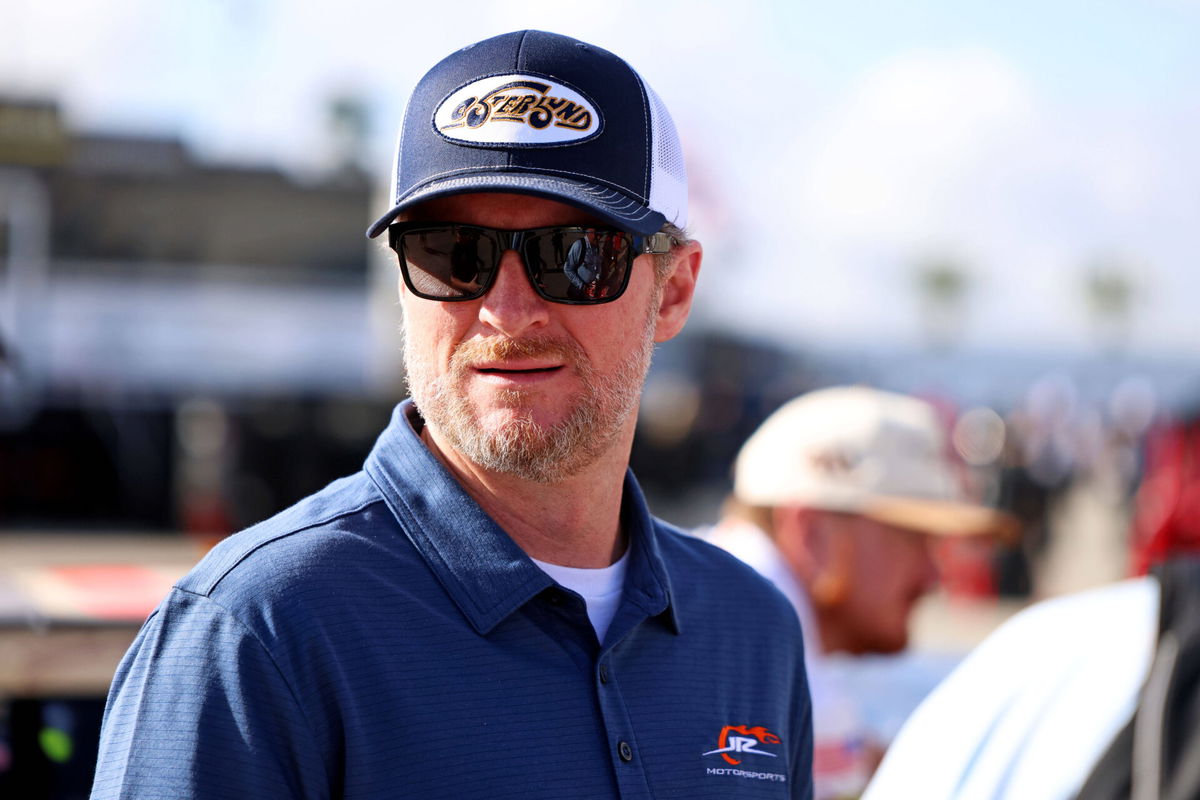
Imago
NASCAR, Motorsport, USA Cup Practice Feb 12, 2025 Daytona Beach, Florida, USA NASCAR team owner Dale Earnhardt Jr. looks on during practice for the Daytona 500 at Daytona International Speedway. Daytona Beach Daytona International Speedway Florida USA, EDITORIAL USE ONLY PUBLICATIONxINxGERxSUIxAUTxONLY Copyright: xPeterxCaseyx 20250212_pjc_bc1_039

Imago
NASCAR, Motorsport, USA Cup Practice Feb 12, 2025 Daytona Beach, Florida, USA NASCAR team owner Dale Earnhardt Jr. looks on during practice for the Daytona 500 at Daytona International Speedway. Daytona Beach Daytona International Speedway Florida USA, EDITORIAL USE ONLY PUBLICATIONxINxGERxSUIxAUTxONLY Copyright: xPeterxCaseyx 20250212_pjc_bc1_039
In the evolving landscape of NASCAR, the debate about horsepower has gained renewed momentum, especially following the 2025 series race at Richmond Raceway. Dale Jr, a prominent figure in the sport, has consistently advocated for increased horsepower, emphasizing its potential to enhance racing dynamics.
Watch What’s Trending Now!
The Richmond race served as a practical demonstration of the benefits of higher horsepower. Austin Dillon’s victory, leading 107 laps, highlighted how increased power can influence race outcomes. Junior’s post-race comments underscored the significance of the shift, noting that making cars harder to drive could lead to more competitive and engaging races.
Dale Jr rallies behind more horsepower to increase opportunities to pass on the racetrack
As of the 2025 season, NASCAR’s Cup Series utilizes a 670 hp engine package, designed to promote parity among teams and enhance on-track competition. Level is appealed across various track types, including short tracks, intermediate, and road courses, for drivers and stakeholders believe that the setup limits the potential for dynamic racing, particularly on short tracks, while handling and driver skill are important.
Increasing horsepower on short tracks in NASCAR significantly enhances the racing experience by amplifying driver skill requirements and intensifying competition. Higher horsepower demands greater throttle control and precision, especially in tight corners and under braking, which leads to increased tire wear and varied car handling. This increased speed and power can lead to more unpredictable races, which engage fans and showcase the driver’s ability to handle these conditions. And Dale Junior is sounding off on that.
Speaking on DJD, Dale Jr. didn’t mince words. He said, “Yeah, I mean, making the cars harder to drive and more out of the racetrack at a place like Richmond, or any of the short tracks, is going to be beneficial. It’s kind of like what it might be like if they had a lot of horsepower…But yeah, I think that’s why the drivers ask for more horsepower—because it would make the cars harder to drive, harder to get the power down, more mistakes, and more opportunity to pass. Right?
Looking back, NASCAR’s horsepower levels have fluctuated over the years. In the early 2000s, engines produced around 900 hp, providing significant speed and power. This high-power setup was phased down to approximately 670 hp to improve safety and reduce costs. Reflecting on this, Dale Jr. added, ” And I’m thinking that, you know, I’ve never really cared about the horsepower debate myself. That’s why I don’t talk about the horsepower too much when I talk about what I would like or don’t like or where I think. I saw good racing in 1980—they didn’t have a whole lot of power back then. I saw some good racing in 2004; we had a ton of power. So I’ve seen good racing no matter what motors were in the car.”
The call for increased horsepower is gaining traction among drivers. Many believe that higher power levels would enhance the racing experience by demanding more from both the cars and the drivers. Discussions have centered around raising the horsepower to 750, a move that could only reintroduce the challenges associated with higher power levels. However, implementing such changes requires careful consideration of engine durability, cost implications, and overall impact on competition.
But the drivers would have to adapt to the increased horsepower. To accommodate and face a new set of challenges, Dale Jr. said, “Yeah, well, the ability to manage your stuff and actually have to finesse the car—like throttle control, things like that. Exactly. That’s kind of what I’m referring to. Some guys can finesse and have throttle control off of turn four at Richmond, and some guys—their car will carry them to a certain point, and then they’re going to fall off a cliff. ”
NASCAR officials have acknowledged the discussions surrounding increased horsepower. While no major changes are planned for the 2025 season, the possibility of adjustments for the 2026 season is under consideration. NASCAR’s senior vice president of competition, Elton Sawyer, mentioned that conversations with stakeholders are ongoing, indicating a willingness to explore changes that could enhance the racing product. But while these talks may solve one half of the problem, Junior has already voiced his opinion on another factor that could make next-gen cars better. However, something else looms on Jr.’s mind.
Dale Jr. sounds off on Cup drivers racing in Xfinity Series
Dale Earnhardt Jr.’s comments on Cup drivers’ participation in the Xfinity Series have sparked conversation within the NASCAR community, as officials consider whether to expand their involvement. Speaking as both a NASCAR legend and an Xfinity Series team owner, Junior offered insights that balance sporting fairness with team strategy.
Speaking on DJD, he said, “I didn’t like when they could race for the championship. Right now it’s five is the limit, and so I would be fine if they went to 10. Fans will say I want to see the cup guys in those races. Fans are going to tune in more if more Cup guys are in those races…and I get that.” Junior highlighted the advantages for team owners when Cup veterans compete, noting the boost in wins and media attention they can provide. At the same time, he acknowledged the challenges for teams without Cup-level resources, where the presence of veteran drivers can make the path to victory far more difficult.
Junior went on to say, “As a car owner, there’s a perfect balance where, yes, I want Cup guys in my cars because, man, you know, they go win some races, right? I love that, but if I’m in a situation where I’m a regular and I don’t have a cup guy in my car, if I owned a team that doesn’t have Cup resources, doesn’t have cup drivers, my chance to win, my chance to even run in the top 10 got harder.” Jr.’s perspective underscores the ongoing debate between fan appeal and competitive fairness, illustrating the delicate balance NASCAR must strike when integrating Cup stars into the Xfinity Series.








